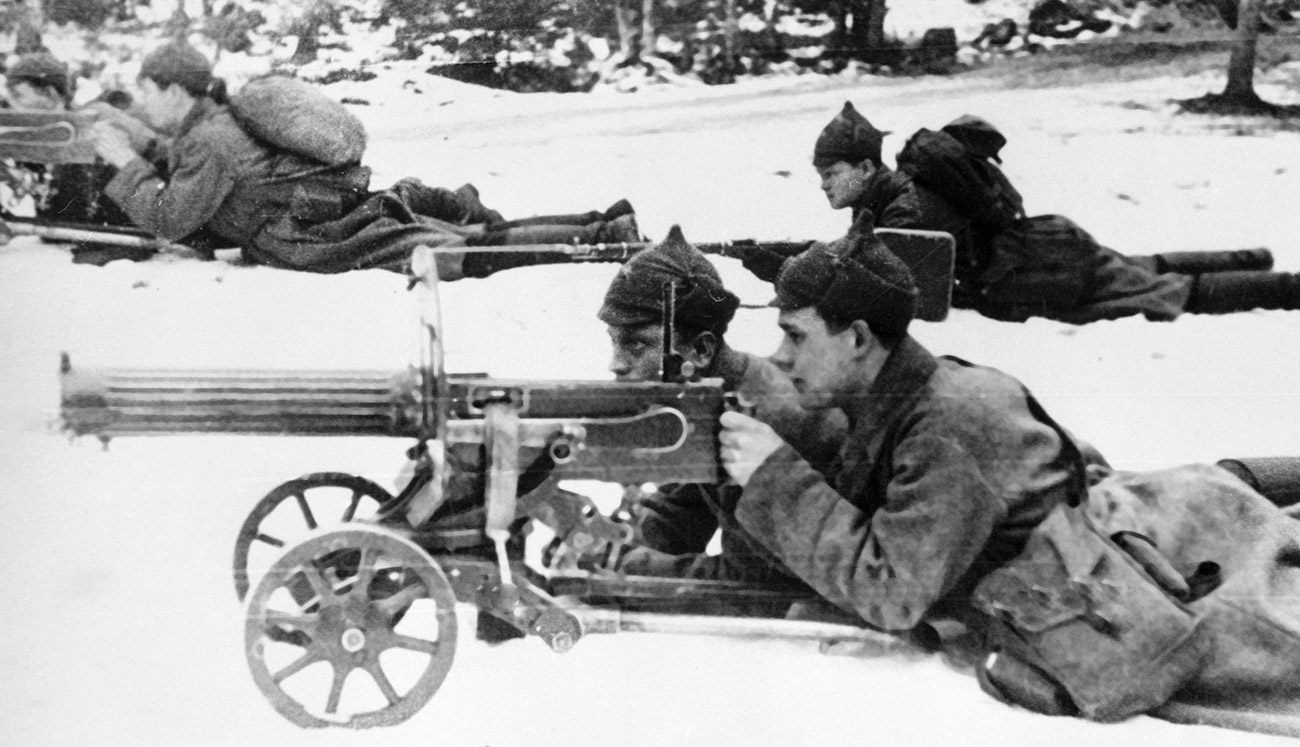Why was Kirill Meretskov nicknamed ‘Marshal of the Northern Directions’?

“Seeing both good and bad on the battlefield, he studied the reasons for both in detail and boldly used everything new and useful for training troops for subsequent clashes with the Germans. Soldiers and officers loved their commander… for his humanity… for his firmness in implementing decisions.” This is how his colleague, Marshal Alexander Vasilevsky, spoke about Marshal Kirill Meretskov.
Meretskov fought almost the entire World War II near Leningrad, in Karelia, in northern Finland and in Norway. Therefore, it’s not surprising that he was nicknamed the ‘Marshal of the Northern Directions’.
 Marshal of the Soviet Union Kirill Meretskov.
Marshal of the Soviet Union Kirill Meretskov.
Meretskov sided with the Bolsheviks immediately after the February Revolution of 1917. During the Civil War, he rose to the rank of chief of staff of a cavalry division, fought against the Whites in the east and south of the country and participated in military operations against Polish troops.
 Kirill Meretskov - assistant to the chief of staff of the 14th rifle division of the Red Army.
Kirill Meretskov - assistant to the chief of staff of the 14th rifle division of the Red Army.
In 1936, Division Commander Meretskov was sent as a military adviser to Spain, which was engulfed in civil war. Assigned to the General Staff of the Republican Army, he helped to repel the Francoists' offensive on Madrid and organize the defeat of the Italian expeditionary force near Guadalajara.
 Meretskov in Spain during the civil war.
Meretskov in Spain during the civil war.
During the Soviet-Finnish War, he commanded the 7th Army, which broke through the Mannerheim Line in heavy fighting in February 1940. For this, he was awarded the title ‘Hero of the Soviet Union’. In August, he was appointed Chief of the General Staff, a post he held for just six months.
 Soviet machine gunners at a firing position during the war against Finland.
Soviet machine gunners at a firing position during the war against Finland.
On June 23, 1941, the second day of the war against Nazi Germany, Meretskov was arrested on a false denunciation on charges of “participation in a military conspiracy”. Many years later, when Novgorod local historian Nikolai Orlov asked him how his interrogations had gone, the military commander dropped his head into his hands, cried and replied: “If you only knew how they beat me!”
 Герой Советского Союза генерал армии Кирилл Афанасьевич Мерецков.
Герой Советского Союза генерал армии Кирилл Афанасьевич Мерецков.
In September 1941, he was released and assigned to Leningrad (now St. Petersburg). At the head of the 7th Separate Army, he stopped the German troops’ advance at an important line along the Svir River and, at the head of the 4th Army, he defeated the Nazis near Tikhvin.
 Tikhvin strategic offensive operation.
Tikhvin strategic offensive operation.
On December 11, 1941, Meretskov took command of the Volkhov Front. Over the next year, he made several attempts to break the siege of Leningrad, all of which ended in failure. He was only able to carry out his plans during ‘Operation Iskra’ in January 1943.
Vladimir, the only son of the future Marshal, fought as a tank platoon commander in the troops of the Volkhov Front. He was awarded the ‘Order of the Red Star’ for his bravery in battle.
 Meretskov with his son Vladimir.
Meretskov with his son Vladimir.
A year later, Meretskov's troops took part in the ‘Leningrad-Novgorod Operation’, as a result of which the siege of Leningrad was finally lifted and the Wehrmacht was thrown back to the ‘Panther’ defensive line on the Estonian border.
After the operation was over, he asked the Supreme Command Headquarters to be transferred to the main theater of military operations. However, as a true master of conducting operations in forested and marshy terrain, he was sent to Karelia instead. There, he conducted the ‘Svir-Petrozavodsk Operation’, aimed at pushing Finnish troops out of the USSR.
 Soviet infantry fights for the city of Olonets, Karelia, June 1944.
Soviet infantry fights for the city of Olonets, Karelia, June 1944.
The commander's final operation in Europe was the defeat of the German troops in northern Finland and Norway. “At 9 am on October 25, our advance units stormed into Kirkenes. When the shots died down and silence set in, residents of the city began to appear, emerging from the caves where they had been forced to hide from the fascists. The people of Kirkenes joyfully greeted the Soviet soldiers. It was touching to see how the usually reserved northerners embraced their liberators with tears in their eyes,” Meretskov recalled.
The next day, he was awarded the title of ‘Marshal of the Soviet Union’.
 Soviet soldiers during the Petsamo-Kirkenes offensive.
Soviet soldiers during the Petsamo-Kirkenes offensive.
In the Spring of 1945, Meretskov was transferred to the Far East, where preparations were underway for war with Japan. In August, the troops of the 1st Far Eastern Front under his command successfully carried out the ‘Harbin-Jirin Operation’: they broke through Nazi Germany's defenses, advanced into Manchuria to a depth of 300 km and liberated the northern part of the Korean Peninsula.
 Marshals Kirill Meretskov and Alexander Vasilevsky in the Far East.
Marshals Kirill Meretskov and Alexander Vasilevsky in the Far East.
In the post-war years, Kirill Meretskov commanded troops in a number of military districts and held various positions in the Ministry of Defense until his death in 1968.
The military leader was awarded the ‘Pobeda Order’, the country’s highest military decoration, seven ‘Orders of Lenin’ and four ‘Orders of the Red Banner’. In addition, Mongolia, North Korea, China, Norway and the United States all honored him with their own awards, as well.
 Marshal of the Soviet Union Kirill Meretskov (foreground) with the combined regiment of the Karelian Front during the Victory Parade on Red Square, 1945.
Marshal of the Soviet Union Kirill Meretskov (foreground) with the combined regiment of the Karelian Front during the Victory Parade on Red Square, 1945.

